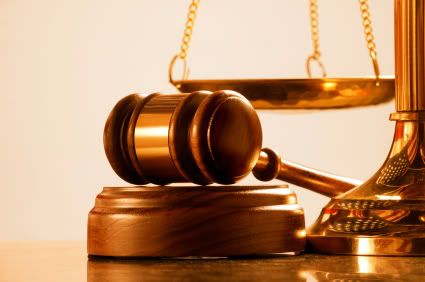One of the things that constantly distresses me about modern liberals is that they continually side with the wrong people. Law-abiding folks? No, liberals are more likely to love the criminal who claims, without evidence, that his "rights" are being violated. It would be funny if it weren't harmful to so many poor people.
Heather Mac Donald has a piece in City Journal on litigation by the New York Civil Liberties Union that is going to make daily life harder for law-abiding people in poor neighborhoods to live in safety.
Lawyers at white shoe law firms who are handling the law suits that, if successful, as they likely will be, make it harder for people like Debbie McBride, a South Bronx building superintendent, who has used New York Police Department’s Trespass Affidavit Program (TAP) to make her building safer. TAP, which is voluntary, makes it possible for policemen to stop and frisk, and sometimes even arrest, people who are behaving suspiciously.
Here is how Mac Donald summarizes TAP:
The Trespass Affidavit Program (TAP) tries to give low-income tenants in high-crime areas the same protection against intruders that wealthy residents of doorman-guarded buildings enjoy.
The NYCLU regards TAP as racist; Ms. McBride, who is African American, says that is bunk.
McBride told Mac Donald that her nephew, who is recently out of foster care and lives with her, has never been stopped by the police. He is a community college student and the police don’t bother him because he isn’t loitering. He isn’t behaving like somebody who is sneaking in to do drugs in the corridors.
Mac Donald’s paints a Hogarthian portrait of life in Ms. McBride’s neighborhood. But thanks to TAP her building is an oasis. TAP is voluntary and the building's management must agree to participate. One of the elderly tenants, a woman who lost a foot to cancer, was afraid to leave her apartment before the building signed up for TAP.
The essence of the problem is that too many activist liberals have a condescending view of law-abiding people in poor neighborhoods. In a passage that captures modern liberalism in a nutshell, Mac Donald writes:
McBride represents a type that seemingly lies outside the conceptual universe of the advocates and their enablers in elite law firms and the media: the inner-city crusader for bourgeois order. In 1999, McBride moved from Brooklyn to her present residence in the Mount Hope section of the Bronx. Her own intersections with street life had left her a three-time victim of rape and blind in one eye from assault—a boyfriend had struck her for refusing to try heroin—but she still wasn’t prepared for the South Bronx. “I had had none of this before,” she says. “It was like New Jack City. People were selling crack openly in the lobby.” She asked fellow tenants how long the lobby’s drug trade had been going on. Thirty years, they answered. “Desperate,” she says, about her building’s lawlessness, McBride started attending community meetings at the NYPD’s 44th Precinct and secretly partnering with a local cop to get rid of the dealers. “I used to give him the nod,” she recalls. The officer made so many arrests in her building that he won a promotion to detective.
So the order Ms. McBride has worked so hard to establish is threatened—by elites who somehow find lawbreakers more sympathetic than Mrs. McBride.


